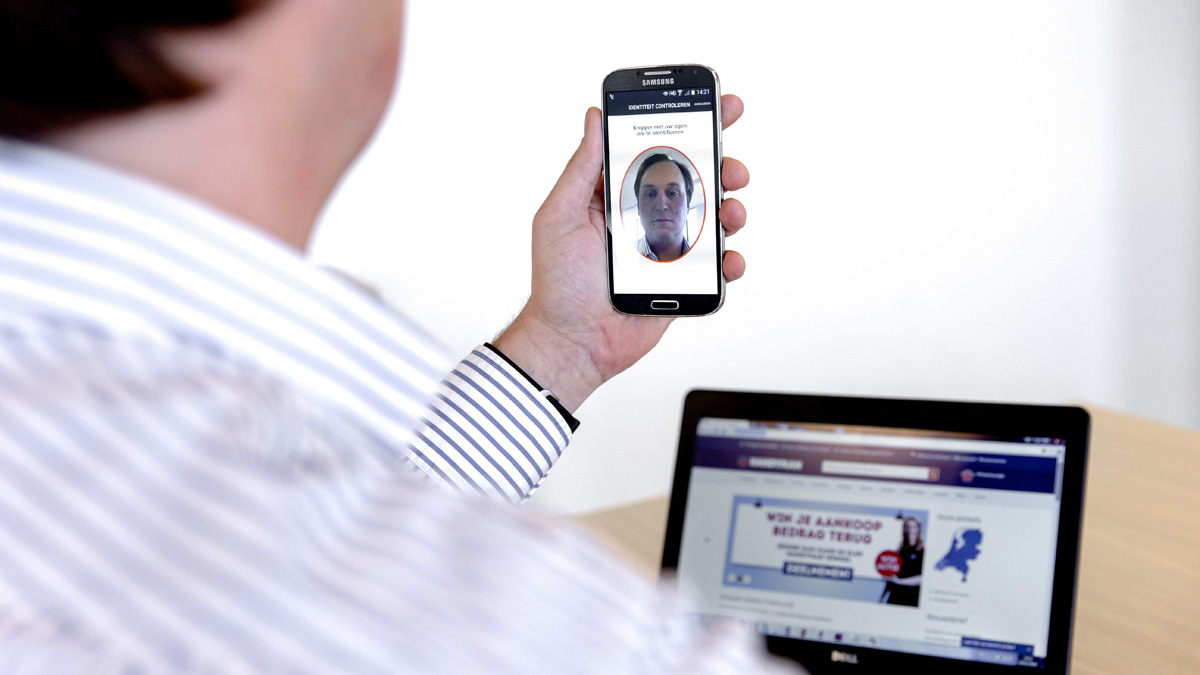How smartphones are revolutionising banking
Soon you won't have to put in your card or pin at a cash machine - or remember passwords at all

A free daily email with the biggest news stories of the day – and the best features from TheWeek.com
You are now subscribed
Your newsletter sign-up was successful
Smartphones have already revolutionised the way we communicate, now banks are starting to use them to change the way we shop and bank. Secure banking apps mean many of us can check our bank balances whenever we like and you can transfer money to friends in moments - now new technology is now shaking things up even more.
Mastercard has announced that it is going to trial facial recognition for payments in the summer. The system will mean you can pay for things online without the need for confirmation codes, passwords or pins. Instead you will take a photo of yourself and that will have to match up with one Mastercard has stored on file.
Having recently watched the complete chaos at passport control when people tried to use the automated system that is meant to match a picture of you with your passport photo, I don’t hold out much hope for ‘selfie pay’. (According to trials in the US and Netherlands, though, 92 per cent of people preferred it to standard password-based options).
The Week
Escape your echo chamber. Get the facts behind the news, plus analysis from multiple perspectives.

Sign up for The Week's Free Newsletters
From our morning news briefing to a weekly Good News Newsletter, get the best of The Week delivered directly to your inbox.
From our morning news briefing to a weekly Good News Newsletter, get the best of The Week delivered directly to your inbox.
But beyond this there are other smartphone advances that should make life easier for us all.
HSBC will soon be using fingerprint and voice recognition to log people into their online banking rather than pins and passwords. “This is the largest planned roll out of voice biometric security technology in the UK, and demonstrates our focus on making our services even more convenient for our customers,” says Francesca McDonagh, HSBC UK’s head of retail banking and wealth management.
“The launch of voice and touch ID makes it even quicker and easier for customers to access their bank account, using the most secure form of password technology – the body.”
Anything that means we all have to remember fewer passwords, while maintaining our defences against criminals, is welcome. A recent survey found that 37 per cent of us think traditional passwords are an out-dated security measure.
A free daily email with the biggest news stories of the day – and the best features from TheWeek.com
New challenger Atom Bank is also intending to introduce biometric security controls that utilise smartphone features. It plans to allow customers to access their accounts with facial recognition or by saying a set phrase.
Soon you may not need to remember a pin number either. Three banks in the US are currently deploying cardless ATMs that allow you to order cash on your mobile and then scan a code at the ATM to get your money. It’s hoped the system will make skimming a thing of the past. That is where thieves insert a device in ATMs that allows them to harvest your data when you insert your card.
The process is also substantially faster than using a traditional ATM. “The performance is kind of shocking to some people, they almost jump back at the instantaneous response,” Doug Brown, leader of mobile technology for FIS Global, a major provider of technology for ATMs, told the Daily Mail. “But it provides more physical security because they can make the transaction faster. We think our model reduces a lot of vulnerabilities.”
In the past there have been concerns that relying on our smartphones too much for banking security could leave us open to disaster if our phones were stolen. But, if the FBI can’t circumnavigate Apple’s iPhone security I’m feeling a lot more reassured that a mugger won’t get past it either.
-
 Political cartoons for February 16
Political cartoons for February 16Cartoons Monday’s political cartoons include President's Day, a valentine from the Epstein files, and more
-
 Regent Hong Kong: a tranquil haven with a prime waterfront spot
Regent Hong Kong: a tranquil haven with a prime waterfront spotThe Week Recommends The trendy hotel recently underwent an extensive two-year revamp
-
 The problem with diagnosing profound autism
The problem with diagnosing profound autismThe Explainer Experts are reconsidering the idea of autism as a spectrum, which could impact diagnoses and policy making for the condition